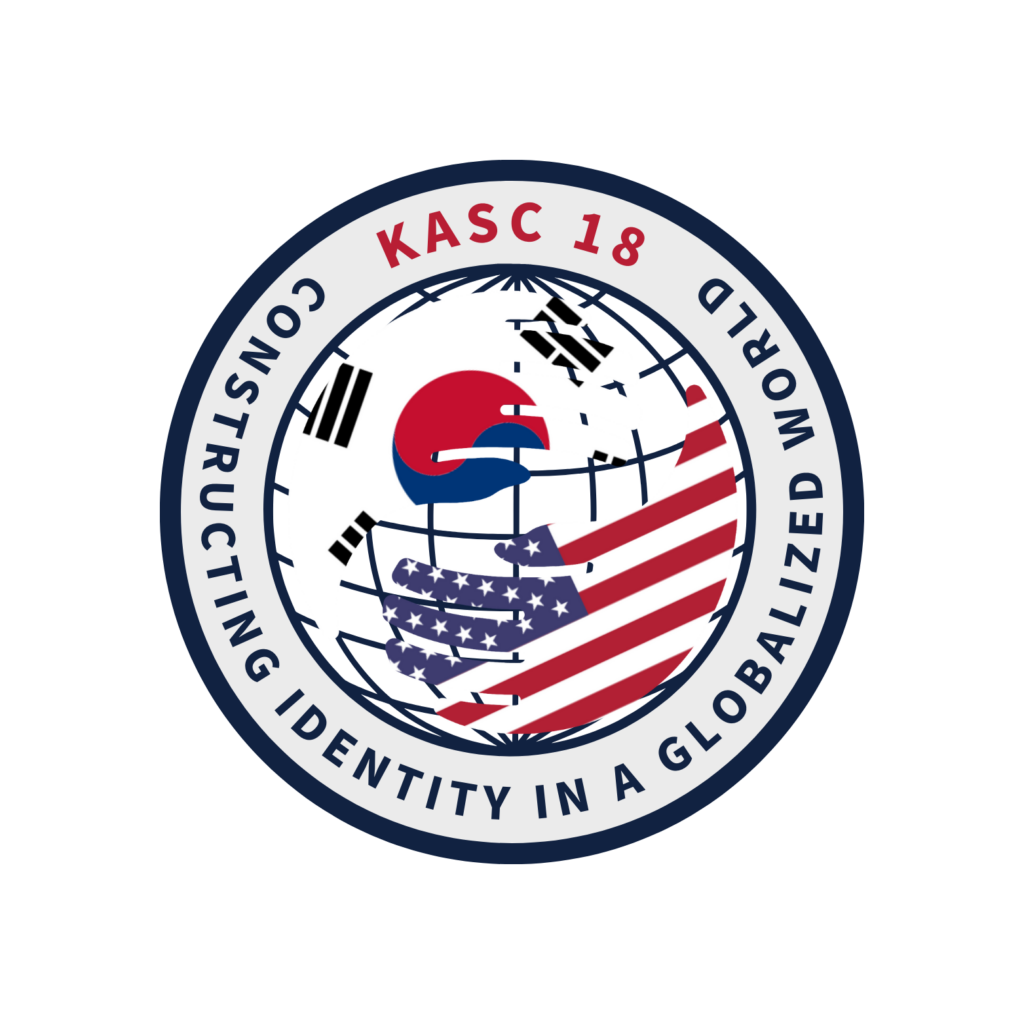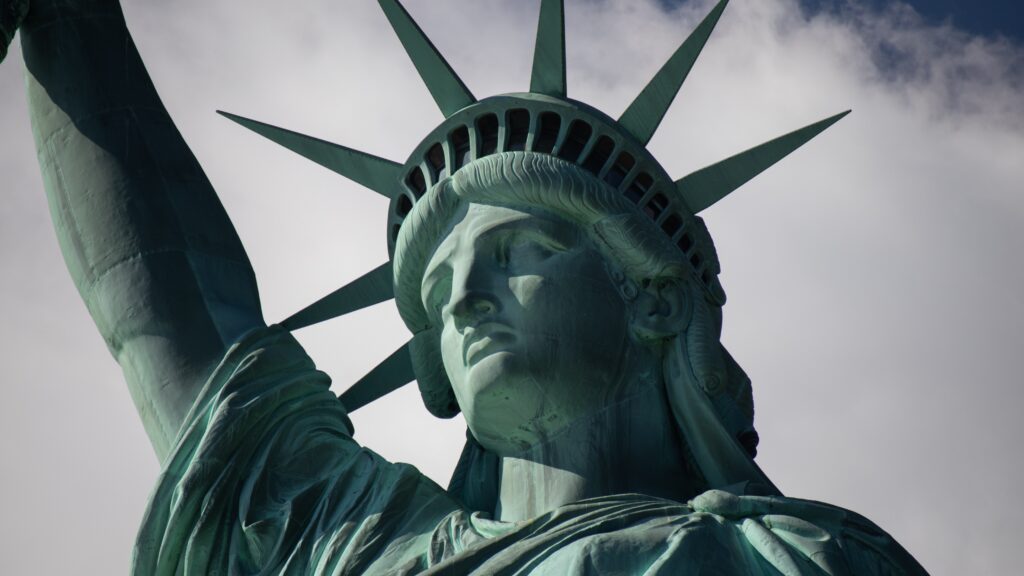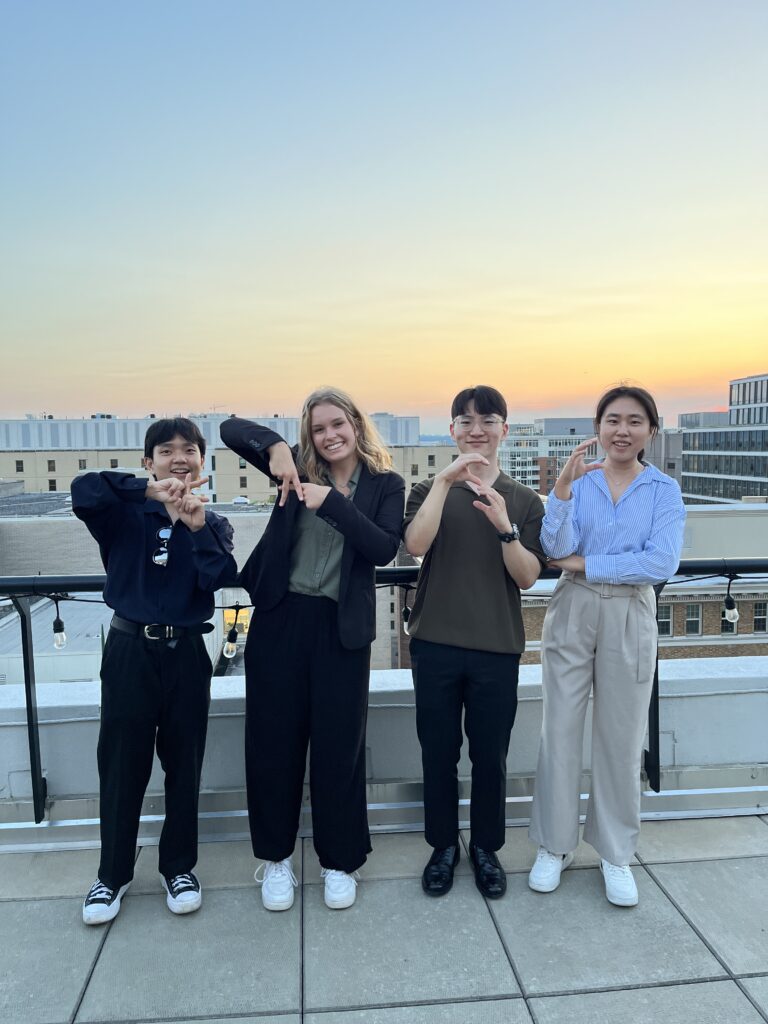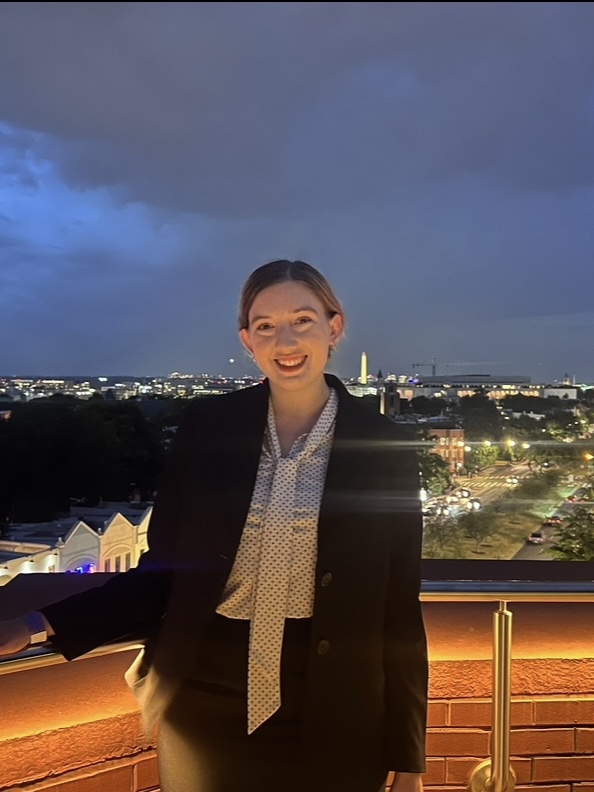
The 18th Korea-America Student Conference as we traveled to Seoul in South Korea, as well as New York City in the United States! American delegates will gather in America before flying out to Seoul where they will meet Korean delegates for the first time. After our time spent in Korea, all KASC delegates will then board a flight to New York, United States and spend about a week in the megacity.
Seoul, South Korea
Seoul, the capital of Korea, is a megacity with a population of about 10 million. Currently, Seoul is attracting attention from many domestic and foreign tourists as it serves as a cultural center not only in Korea, but around the globe due to the deep-rooted tradition and recent popularity of K-Culture.
Given Seoul’s rich history, the city is filled with distinguishable architecture and heritage sites. There are royal heritage sites like Gyeongbokgung Palace, Changdeokgung Palace, and Changgyeonggung Palace. Nearby, Bukchon Hanok Village is a famous destination for both Korean and foreign tourists due to its traditional architecture juxtaposed with the modern urban environment. Additionally, there are many modern attractions like Namsan Tower Observatory, Namdaemun marketplace, and the Han River. In short, these are a few of the must-visit places when people come to Seoul. With this collection of must-visit places we can experience royal, traditional, and modern culture in Seoul together.
Due to the prevalence of the Korean Wave, or Hallyu, perhaps you already recognize Seoul. For instance, Seoul was one of the filming locations for the ‘Avenger: Age of Ultron’ film in 2015. In the movie, there were many famous locations including Mapo Bridge and the 63 Building shown to highlight the beauty of Korea’s capital. Furthermore, there are many entertaining K-Culture sites such as K-Drama filming sets and HYBE INSIGHT, which is a well-known BTS museum. So, whether it be riding attractions at Lotte World amusement park, hiking up Namsan Tower to lock one’s token of love, or simply cafe hopping around Seoul, there is much to see and do in the megacity!
In addition to these cultural sites and sightseeing, Seoul is well-known for its business and technology sectors. There are many international corporations headquartered here like Samsung, LG, Hyundai, and numerous others. The city’s internet and Wi-Fi connection speeds as well as top-notch public transportation systems mirror this focus on technology as they are some of the fastest and convenient in the world. South Korea, and Seoul subsequently, is a rapidly rising player in global affairs as we can see from their involvement in international issues. For example, the United Nations Office of Sustainable Development is located in the Gyeonggi province and many embassies were constructed directly in the city limits of Seoul.


New York City, USA
New York City is also known as the city that never sleeps. Being a jack-of-all-trades, New York City is a multifaceted powerhouse – home to many blockbusters, cultural landmarks, and world-renowned universities. New York City comprises five boroughs: Brooklyn, the Bronx, Queens, Staten Island, and at its core stands Manhattan, a global metropolis rich in history and culture. With over 400 colleges and universities – including New York University, Columbia University, and Fashion Institute of Technology – New York’s education system suits the needs for students with any and all interests. Along with its strong academic background, New York has been the forefront for American culture for many years and enjoyed by many throughout the world, such as their show-stopping Broadway shows, ‘name-brand’ delights including the New York cheesecake and New York-style pizza, and the symbol of freedom and opportunity, the Statue of Liberty.
In regards to our delegates, New York offers a dynamic platform to address its RoundTable topics comprehensively and also provides a plethora of cultural/academic programming events. The city’s thriving arts and media scene allows delegates to witness firsthand the creative outlook many ambitious creators have taken through a visit at the Museum of Modern Art (MoMA). The Financial District and legal institutions provide an ideal setting for exploring business, law, and global diplomacy, with opportunities to visit Wall Street, attend lectures on international trade, and engage with legal professionals. New York’s global political significance is evident through visits to foreign consulates and participation in diplomacy simulations, while the United Nations headquarters offers a unique setting for examining international relations. The city’s commitment to sustainability and innovation provides a backdrop for discussions on the environment and technology.
During the final days of our conference, we will hold our Final Forum presentations in-person at this site before reflecting on the entire conference as a whole.


18th KASC Executive Committee
What is the Executive Committee (EC)?
Since it first launched in 2008, the Korea-America Student Conference has been planned and implemented by students from the United States and South Korea. The 18th KASC Executive Committee (EC) is a group of elected students who create and implement the conference and comprises of an equal number of students representing the US and South Korea. EC elections occur at the end of each summer’s conference, during which both American and Korean delegates are nominated to run for one of ten positions and are elected by their peers.
Each year, American and Korean EC members collaborate across the Pacific Ocean to plan the next conference. Each part of the conference is student-led, from Roundtables to daily programming, contacting lecturers, and working with host universities to organize the sites of the conference. During the conference, EC members guide the student delegation as onsite coordinators and RoundTable leaders.



Valerie Grau
American Chair
Indiana University Bloomington

Eunseo Kim
Korean Chair
Kyungpook National University

Ainslee Rose
Communication Chair
University of Buffalo

Isabella Infosino
Treasurer
Middlebury College

Somin Hwang
Marketing & Recruitment Chair
Ewha Womans University
Executive Committee Bios
American EC Members
Valerie Grau / American Chair
Valerie (she/her) is in the last year of her masters degree at Indiana University Bloomington where she will be receiving an MA in International Studies and an MM in Voice Performance. For KASC18 she will oversee the human rights and protest culture roundtable. After her masters program, she plans on pursuing law school. Her research interests lie in international law, human rights law, and climate litigation. This coming November she will attend the COP29 conference as a delegate from her University. Valerie is most looking forward to making lasting connections with people from all over the US and South Korea. She hopes to bring the experiences she gains from her research and previous conferences to her roundtable group.
Ainslee Rose / Communication Chair
Hello!
My name is Ainslee, and I’m excited to be the Communications Chair for KASC 18. I’m from Buffalo, NY, and recently graduated with a degree in East Asian Studies and Linguistics. As an intern at the International Institute of Buffalo and a research fellow at the Asia Research Institute, I’ve gained valuable experience in global issues and cross-cultural research. My main research lately has been on identity theory and sociolinguistics and I am happy to be overseeing the Art and Identity roundtable!
KASC 17 was a pivotal experience for me, sparking my interest in government work and inspiring my graduate school applications, including to Georgetown University. I’m excited to help make KASC 18 an unforgettable journey for everyone involved!
Isabella Infosino / Treasurer
Isa (she/they) is a sophomore at Middlebury college where she is majoring in International Politics and Economics. They are the treasurer on the Executive Committee for KASC18 and will oversee the Environment and Climate Change roundtable. She is interested in the arts, a part of the Middlebury RIDDIM dance troupe and Middlebury College Orchestras as well as learning languages, namely French and Portuguese. They also have a passion for the sciences, especially chemistry. She is looking forward to continuing her exploration of the Korea-US relationship by forming lasting connections with students across the United States and South Korea.
Korean EC Members
Eunseo Kim / Korean Chair
Eunseo(Chloe) is a senior at Kyungpook National University, where she majors in English Language and Literature. For KASC 18, she is the Korean Chair and will work on topics related to economics and Trade. She is also interested in human rights and developing the world to be a better place for all, so she is trying to find ways to cooperate with them in detail.
She has an impressive memory of KASC 17, which was held last summer. She is now looking forward to improving the relationship between the ROK and the U.S. regarding the protection of human rights and the increase of economic growth between the two countries. She hopes the delegates for KASC 18 also enjoy the great opportunity to be key players and explore the bigger world.
Somin Hwang / Marketing & Recruitment Chair
Hello, everyone!
My name is Somin Hwang and the Marketing & Recruiting Chair for KASC 18. I am currently double majoring in Political Science and International Relations, French Language and Literature. at Ewha Womans University. Also, I am recently interested in international development cooperation. Especially I try to get aware of the identities of each developing country and find a way to respect them.
I had life-changing days last summer in KASC 17. It was unforgettable weeks not only to get a lot of insight by the lectures and roundtable discussions but also to meet precious friends with various backgrounds and exchange cultures with them. I wish to make worthy memories to all the delegates who will be in KASC 18.
I will oversee the Politics and Technology roundtable in KASC 18. I can not wait to get new insights about correlation on politics and technology in my roundtable group.
Let’s see at the conference!
Cooperative Perspectives on Human Rights and Protest Culture
In this roundtable, we will explore how the historical contexts and political systems of South Korea and the United States have shaped their respective approaches to human rights activism and protest culture. Both nations have a long history of social movements addressing inequality, injustice, and political oppression. However, the forces that drive these movements are deeply rooted in each country’s unique historical, social, and political landscape.
This roundtable will delve into the similarities and differences in how social movements mobilize in these two nations, including the role of civil society, government response, and international influences. By examining both nations’ approaches, we hope to understand better how human rights activism functions across different political and cultural contexts, and how these movements can inform global strategies for effecting change.
How have historical contexts and political systems in South Korea and the U.S. shaped their approaches to human rights activism and protest culture? What similarities and differences can be observed in how social movements mobilize to effect change?
Art & Identity
This roundtable will dive into the powerful intersection of identity, race, and culture as expressed through art, media, and literature. We will explore how communities, especially the Korean American and broader Asian American experiences, use art as a medium to portray the hidden, often unspoken sides of life. From graffiti to experimental media, banned books to historical texts, discuss how these expressions of identity offer a platform to explore the struggles, cultural nuances, and the racialized experience in ways that may challenge or reinforce mainstream narratives. Participants are invited to discuss how art can serve as both a personal reflection and a collective voice for one’s identities, while also considering the ways art shapes and reshapes public perceptions of race and culture. This session will offer an open dialogue on the role of creative expression in navigating issues of belonging, representation, and the reclamation of identity.
How can art serve as a bridge between individual experiences and broader community narratives? How can identity be constructed by media and other art forms an individual consumes? Consider the significance of non-mainstream spaces in empowering artists to express marginalized experiences
Economy & Trade
A country’s development is closely tied to its economy and trade. In this roundtable, we will discuss the economic situation and issues with trade in the United States and South Korea, focusing on how these have influenced the relationship between the two nations thus far. At the same time, discussions will be held about what impact it is likely to have in the future and how it should be solved.
This roundtable will also explore trade across various sectors and consider the positions taken by businesses in each country, beyond the regulations of the governments. Additionally, we aim to discuss the pros and cons of the current situation, seeking to find reasonable solutions to overcome challenges or foster development in the field.
- What is a current issue between the ROK and the U.S. related to economy and trade that has interested you. How do you expect it to affect the future relationship between the ROK and the U.S.?
- How will the presidential election this year (2024) in the U.S. impact global issues of the economy and specifically how will these changes influence ROK-U.S. relations?
- How would you best describe the current economic and trade relationship between the ROK and the U.S.?
Politics & Technology
The relationship between politics and technology is reshaping how governments interact and engage with their citizens and the world. Technology now plays a pivotal role in political campaigns, policy-making, and global diplomacy. Social media allows leaders to communicate directly with the public, but it also fuels misinformation and disinformation. Meanwhile, advances in artificial intelligence and cybersecurity are influencing both domestic governance and global power dynamics, raising ethical concerns about privacy, surveillance, and the misuse of technology.
On the international stage, technology has become a tool for both collaboration and competition. Cyberattacks, election interference, and digital espionage have emerged as new challenges in global relations, while technological innovations like 5G and AI development are influencing global power structures. As countries compete for technological dominance, the digital divide between nations also becomes a critical issue in global politics.
How has technology influenced political campaigns, elections, and governance?
– What role does technology play in shaping domestic politics and international relations?
– How does digital surveillance impact citizens’ privacy and global diplomacy?
– How can nations address cybersecurity threats without infringing on civil liberties?
What are the global implications of the digital divide in political participation and influence?
The Environment and Climate Change
In the Environment and Climate Change roundtable, participants will explore the critical collaboration, as well as new areas for collaboration, between the U.S. and South Korea (ROK) in addressing global environmental challenges. Both nations have a history of working together on climate-related issues, from clean energy innovation to policy coordination on emissions reductions. As the climate crisis intensifies, this partnership has become even more essential, focusing on the development of sustainable solutions and reducing environmental impact across industries.
During the discussions, delegates will identify a pressing environmental or climate issue and propose policy recommendations to advance solutions. Potential topics include renewable energy deployment, climate resilience, carbon capture technologies, reforestation efforts, and sustainable infrastructure development. By leveraging the expertise of both countries, the goal is to promote actionable steps toward mitigating climate change and safeguarding the environment for future generations.
- What are some current efforts to address climate change that the US and ROK have put into action? Have these efforts been effective in mitigating climate change?
- What are the reasons for which the US and ROK might have interest in further collaboration to address climate change? What is their role on a global scale?
- Other than the environment, what other aspects of life or society might also affect how we decide to move forward with policy? How do the economic aspects of different technologies affect how we might approach them?